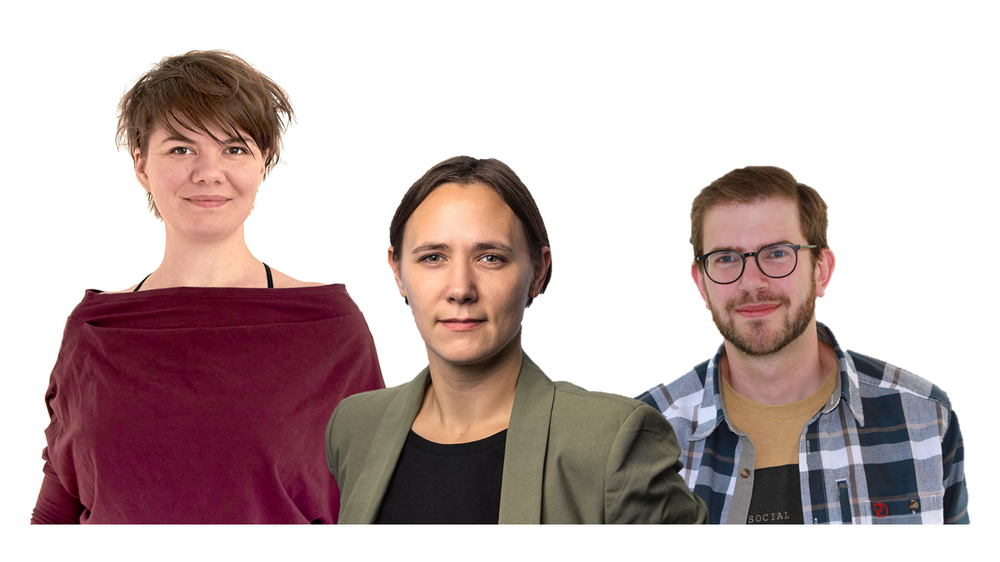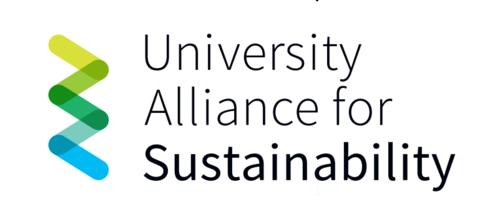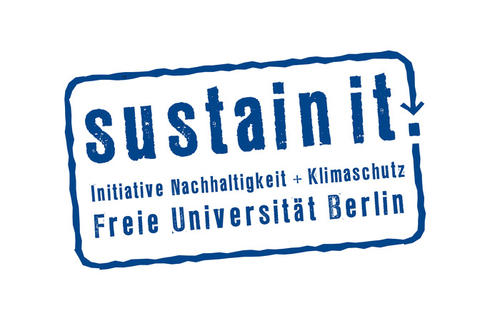FUFLINTAΦ
The Team
Eva Glomski is a research assistant and works as part of a tandem at the interface between experimental physics and physics didactics in the Dau/Kubsch working groups in Education for Sustainable Development.
Prof. Dr. Marcus Kubsch is a junior professor of physics didactics and researches artificial intelligence in digital teaching-learning environments, competence development, uncertainties, learning analytics and curriculum development, both in the school and higher education context.
Prof.'in Dr. Lisa Stinken-Rösner is head of the working group Physics and its Didactics and responsible for physics didactics education at Bielefeld University. The focus of her research is on the analysis of inclusive teaching-learning settings with a particular focus on marginalized groups.
About the Idea
The FUFLINTAΦ project addresses the low visibility of women and FLINTA people in physics, which makes it difficult for female students to develop a strong science identity. In the seminar “Promoting science identity in physics and science lessons”, students are instructed on how to make women in science more visible and establish the link to science identity. They develop posters and teaching materials on the profiles of female scientists and are empowered to actively contribute to the promotion of gender equality and diversity in the natural sciences.
FUFLINTAΦ promotes diversity and gender equality as key elements for innovation and sustainable development in science. It supports the UN's 5th Sustainable Development Goal, which calls for gender equality. Through the creation of Open Educational Resources (OER) and the inclusion of diverse perspectives, the project contributes to a more inclusive and sustainable academic culture at Freie Universität Berlin.
In the long term, FUFLINTAΦ wants to inspire more women and FLINTA people for physics and increase their visibility. Students should be empowered to actively contribute to the promotion of gender equality and diversity and to establish an inclusive scientific culture. The project aims to promote structural changes in curricula and scientific practice.
FUFLINTAΦ is currently in the design phase. A first course is planned for the summer semester 2024. The materials developed will be made available as open educational resources. The long-term plan is to continue the project.
Course in summer semester 2025: “Promoting science identity in physics and science lessons”.
Instagram: @didaktikphysik
Conclusion and outlook
We at the FUFLINTAΦ project are delighted to have taken an important step toward greater gender equality in physics with the first course in the 2024 summer semester.
The Science Identity seminar, featuring guest lectures and workshops, began on April 23 for teacher training students and others. Other interested parties were also invited to attend, and the lectures by experts in particular are open to anyone who is interested. Further information can be found in the flyer and seminar description, as well as in the course catalog.
Contact
Eva Glomski e.glomski@fu-berlin.de
Marcus Kubsch
Lisa Stinken-Rösner





